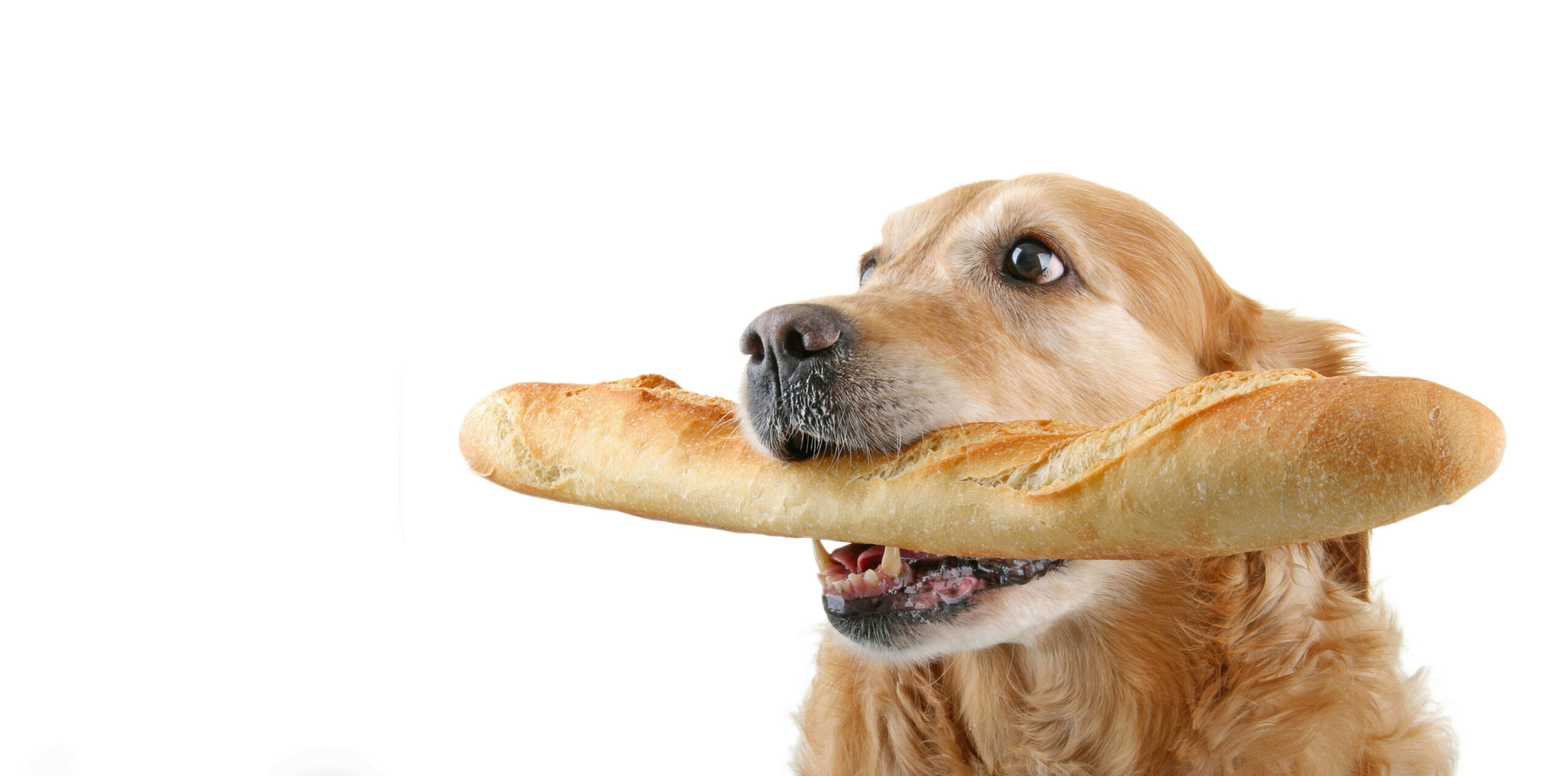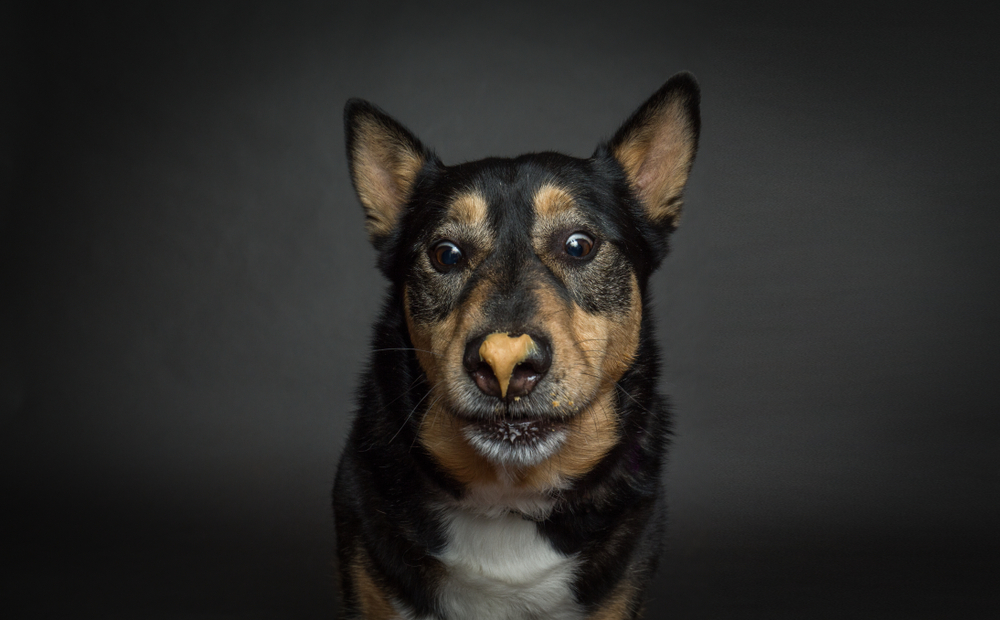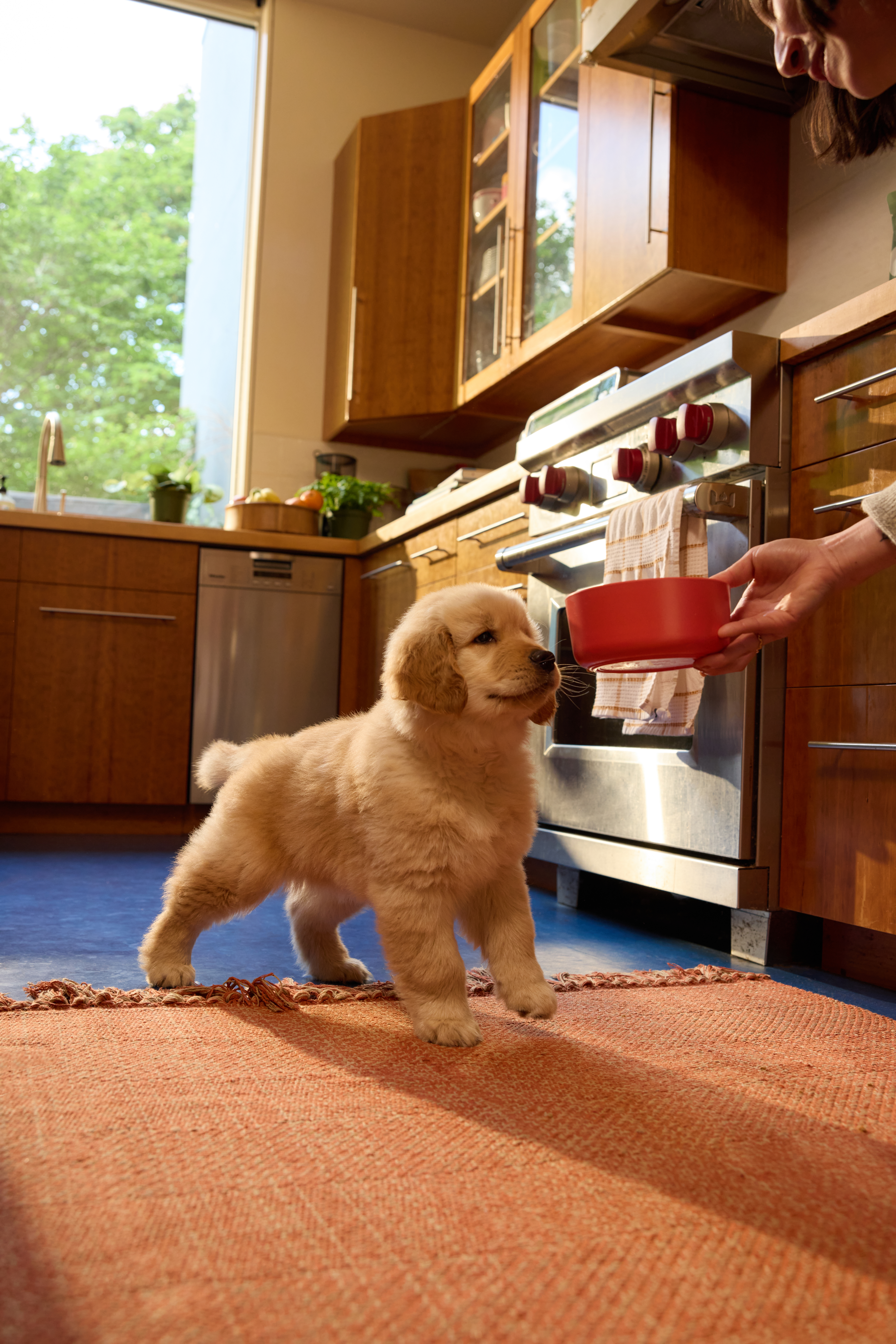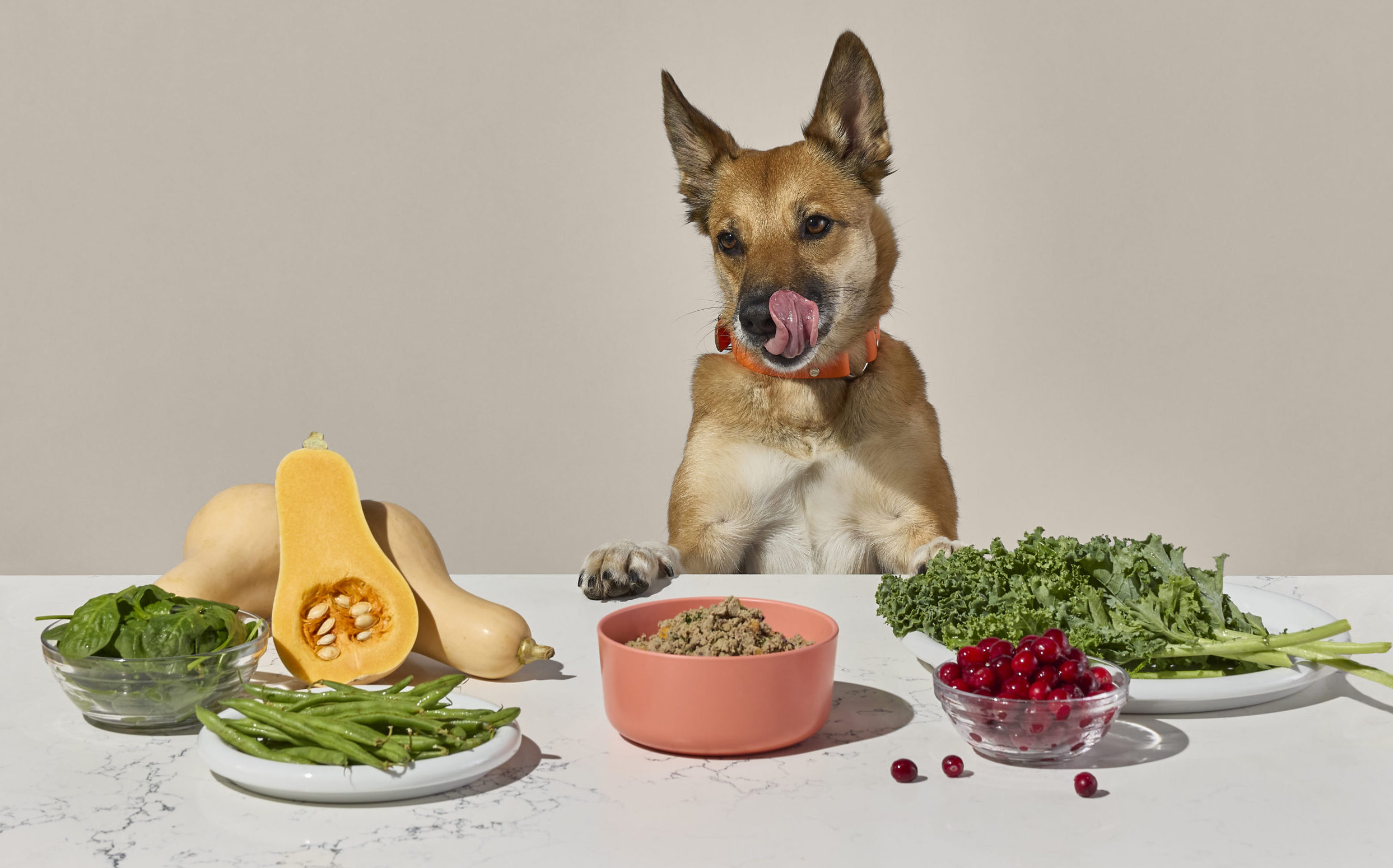Hey Ollie blog readers! We’re offering you an exclusive 60% OFF your starter box! Try now!
It seems like almost everything comes with a gluten-free label these days, so it was only a matter of time before we asked whether we should be cutting wheat from our pups’ diets as well. With the seeming rise in canine food allergies, it’s a legitimate question. We searched for the grains of truth on dogs and gluten:
Wait, what is gluten again?
Gluten is the name for proteins found in wheat, rye, barley, durum, semolina, farina, farro, and graham, among other things. It also helps food maintain its shape (almost like glue), according to the Celiac Disease Foundation. Millet, rice and quinoa are free of gluten, as are starches such as lentils and corn.
What’s the difference between gluten-free and grain-free?
Grain-free food does not contain grains, whereas gluten-free may or may not contain grains. Got it? Because not all grains contain gluten. So rice is gluten-free, not grain-free. Got it.
Can dogs have a gluten intolerance?
Similar to an intolerance in people, dogs can have an immune response to gluten that typically causes an upset stomach, says Brittany Kuenster, licensed veterinary technician with Pet Vets in Oak Park, Illinois. However they generally do not suffer from Celiac disease, with the exception of Irish Setters.
How can I tell if my dog is intolerant?
Surgery and biopsies are the only way to tell for sure if a dog is allergic to gluten (blood diagnostics won’t do the trick), so vets typically suggest an elimination diet for dogs who are having stomach, digestion and other gastro issues, Kuenster says. Other symptoms can include itchy skin and ear infections.
How much gluten is usually in dog food?
Many commercial pet foods are heavy in gluten. The reason? According to a major study by Veterinary Dermatology of 278 cases of food allergies in dogs where the problem ingredient was identified, proteins were responsible for the vast majority of the allergies. Wheat was only the source of 42 of the allergic reactions. Glutenous ingredients are also relatively inexpensive and can increase the protein content. However they are a less nutritionally-rich source of protein than meat.
Can removing gluten from my dog’s diet hurt them?
There’s no harm in kicking gluten to the curb whether or not your dog is intolerant. Gluten doesn’t have any great nutritional benefits, says Kuenster, so it wouldn’t harm them to eliminate it.
The Ollie blog is devoted to helping pet parents lead healthier lives with their pups. If you want to learn more about our fresh, human-grade food, check out MyOllie.com.
Tagged As:

The nutrition your dog needs,
the food they want.

Enjoying our articles? Subscribe our Newsletters and get new articles directly to your inbox
You might also like
21 July 2025
6 MINS READ
Can Dogs Eat Nuts? Which Nuts Are Safe & Serving Guide
Can dogs have nuts? Some nuts are fine in moderation, but others can cause serious harm. This quick guide breaks down which nuts are safe for dogs, which to skip, and how to feed nut butters respon…
18 July 2025
4 MINS READ
New Puppy Diet Recommendations for Healthy, Happy Growth
As a new pup parent, one of the biggest ways you can support your puppy’s long-term health is by providing the right nutrition. A puppy’s dietary needs are different from an adult dog’s, and…
by Ollie Pets
18 July 2025
5 MINS READ
How Human-Grade Dog Food Benefits Your Pup’s Health and Happiness
You’ve likely heard the term “human-grade” dog food, but what does it really mean, and is it worth it? Choosing human-grade food can be a significant investment for your dog’s long-term he…
by Ollie Pets







